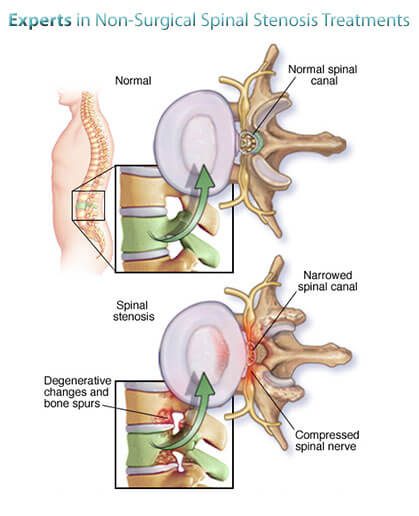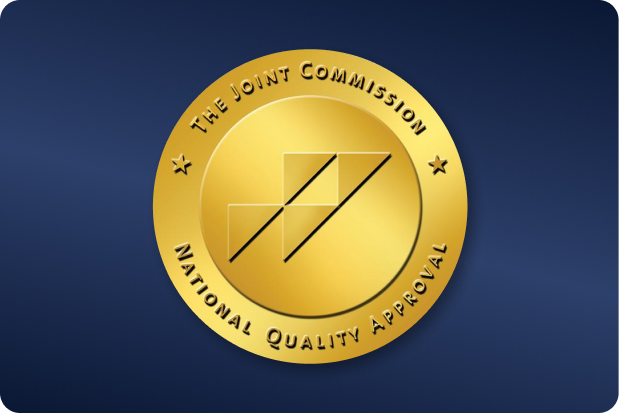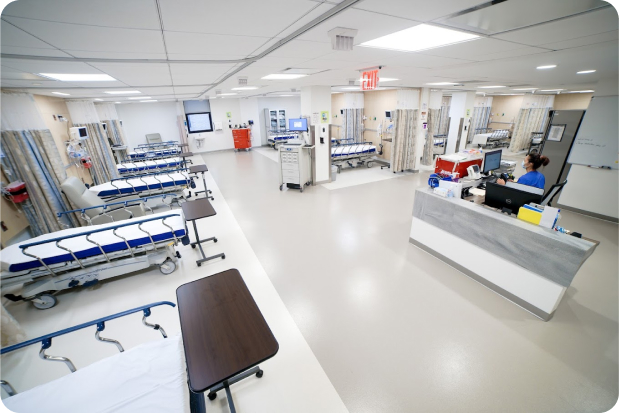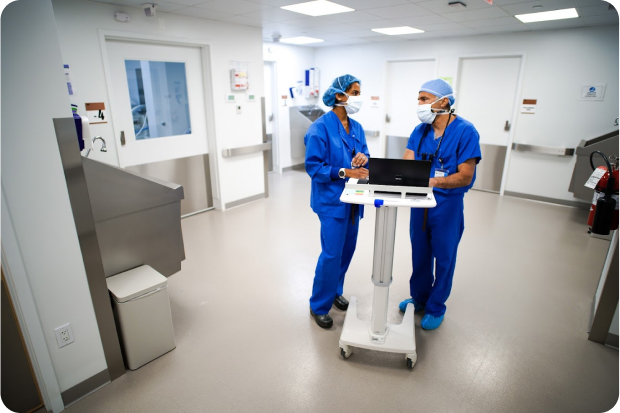 OUR LOCATIONSCall to book (212) 604-1300
OUR LOCATIONSCall to book (212) 604-1300
 OUR LOCATIONSCall to book (212) 604-1300
OUR LOCATIONSCall to book (212) 604-1300
Table of contents
Spinal stenosis is a narrowing of the canal of the spine that can cause pressure to be placed on the spinal cord and nerves of the spine. In a healthy spinal column, nerve roots leave the spine via nerve root canals unrestricted. Spinal stenosis occurs when bone and soft tissues begin to grow over the top of the vertebrae and end up covering the nerve root canals.

There are a few main types of spinal stenosis, including:
It is possible to have spinal stenosis and have no signs or symptoms of the condition. In those who do have symptoms, they usually are gradual symptoms and may become worse over time. Spinal stenosis causes constriction to the nerve roots and can lead to a number of painful and unpleasant symptoms as a result. The most common symptoms of spinal stenosis include:




The most common cause of spinal stenosis is natural wear and tear due to the aging process in which ligaments may thicken, herniated discs or bulging discs may occur, and cysts may form. Arthritis and spinal injuries are also seen as causes of spinal stenosis.
First, your doctor will ask about your symptoms and what daily life looks like for you. Then, they’ll do a quick exam — testing your reflexes, strength, and how your nerves are working. If they need a closer look, they might order an X-ray, MRI, or CT scan to see if your spine is narrowing or pressing on any nerves. The sooner they spot it, the sooner you can start feeling better.
You don’t always need surgery to feel better. Many people find relief with:
When symptoms don’t improve or get worse, surgery might be the next step.
Common procedures include:
These options are usually for more advanced cases and aim to reduce pain and improve movement.


Living with spinal stenosis doesn’t have to mean giving up your routine.
Here are a few effective ways to manage symptoms:
The first step in treating spinal stenosis is to make an appointment to see an NYC interventional spine specialist for diagnosis and to learn your treatment options.
If you’re experiencing symptoms of spinal stenosis, New York Pain Care offers comprehensive diagnostic and treatment options. Our expert offers non-surgical methods, including physical therapy and injections, as well as surgical solutions for severe cases. Call us at (212) 604-1300 or book an appointment using the form above. At New York Pain Care, our goal is to get you started on a personalized treatment plan to find relief.
New York Pain Care
20 Squadron Blvd, Suite 290
New City, NY 10956
(212) 242-8160






